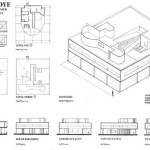House Plan Approval Process in Sri Lanka: A Comprehensive Guide
In Sri Lanka, obtaining approval for house plans is a crucial step in the construction process. This guide provides a comprehensive overview of the house plan approval process, helping you navigate the necessary steps and requirements.1. Understanding the Legal Framework:
- The Town and Country Planning Act No. 13 of 1946 and its subsequent amendments govern house plan approvals in Sri Lanka. - Local authorities, such as Municipal Councils, Urban Councils, and Pradeshiya Sabhas, have the authority to grant approvals.2. Initial Steps:
- Before submitting your house plan for approval, ensure that you have a clear understanding of the zoning regulations and land use policies applicable to your area. - Hire a qualified architect or draftsman to prepare the house plan according to the prescribed guidelines and standards.3. Required Documents:
- Ensure that you have the following documents ready before submitting your house plan: - Completed application form. - Site plan showing the property boundaries, existing structures, proposed building location, and access roads. - Detailed house plans with floor plans, elevations, sections, and structural drawings. - Ownership documents, such as the land deed or certificate of title. - Environmental Impact Assessment (EIA) report, if applicable. - Other supporting documents as required by the local authority.4. Submission Process:
- Submit your application and the required documents to the relevant local authority. - Pay the prescribed fees and obtain a receipt. - The local authority typically assigns an officer to review your application.5. Review and Approval Process:
- The reviewing officer examines your house plan for compliance with zoning regulations, building codes, and other relevant guidelines. - The officer may request modifications or additional information if necessary. - After reviewing the revised plans, the local authority grants approval.6. Duration of the Approval Process:
- The duration of the approval process varies depending on the complexity of the project, the workload of the local authority, and the time taken to address any revisions or modifications. - On average, the approval process may take several weeks to several months.7. Validity of the Approval:
- Once approved, the house plan is generally valid for a specific period, typically two years. - Extensions may be granted upon request and subject to local authority approval.8. Modifications and Revisions:
- If you wish to make changes to the approved house plan, you must submit a revised plan for approval. - The local authority may require additional fees and review the revised plan accordingly.9. Following the Approval:
- After obtaining approval, you can proceed with construction. - Ensure that the construction complies with the approved house plan and all applicable building codes and standards.10. Additional Considerations:
- Consult with the local authority in advance to clarify any specific requirements or additional documents needed for the approval process. - Engage with a qualified professional to ensure the accuracy and compliance of your house plan.Conclusion:
Following the outlined steps and requirements will guide you through the house plan approval process in Sri Lanka. By obtaining the necessary approvals, you can ensure that your construction project complies with legal obligations and maintains the integrity of your property.
House Contractors Council Approval Okithma Construction

Construction Company Sri Lanka Convert Vasthu House Plan Designing And Constructions Kurunegala Architects In Kandy Architectural Services Consultants Building Contractors

House Plan Approval In Sri Lanka Uda Planning Permission Kedalla Lk

The Urban Development Authority

House Plan Drawing Chilaw Architectural Designers

How To Get The Approval Building Plans

House Contractors Council Approval Okithma Construction

House Plan Approval In Sri Lanka Uda Planning Permission Kedalla Lk

Survey Plans Diagrams

Home Plans Lk Sri Lanka








